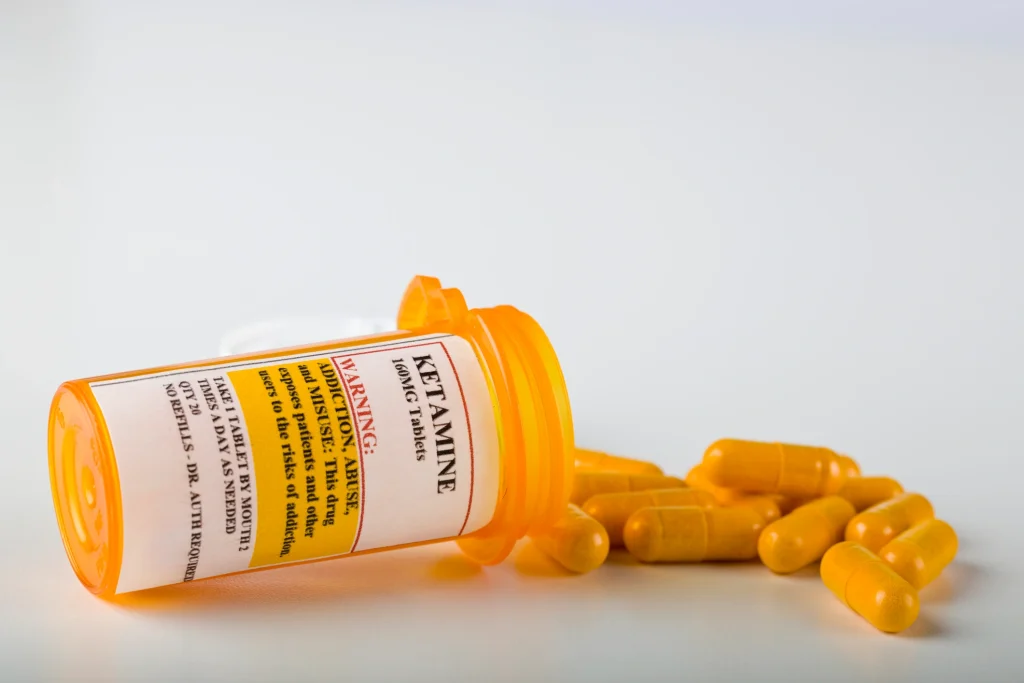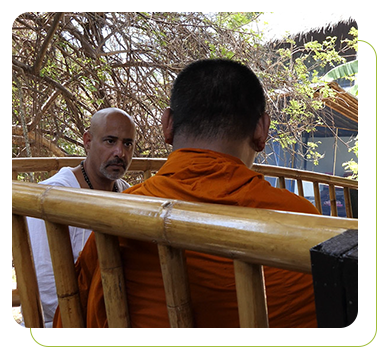Ketamine Myths Busted: Separating Fact from Fiction
05 min read

Introduction: Why We Need to Debunk Ketamine Myths
From Party Hype to Medical Controversy
Ketamine has made headlines for everything from club culture to depression treatment. But along with its rising profile comes a wave of dangerous misinformation.
How Misinformation Puts Lives at Risk
False beliefs about ketamine’s safety, addictiveness, or therapeutic value can lead people—especially youth and vulnerable individuals—to misuse it. It’s time to bust the myths and present facts over fiction.

Myth #1: “Ketamine Isn’t Addictive”
The Science of Psychological Dependence
While ketamine may not cause intense physical withdrawal like opioids, it’s highly psychologically addictive. Regular users can:
Build tolerance rapidly
Crave the dissociative escape
Struggle emotionally without it
Real-World Addiction and Relapse Risks
Many users experience loss of control, secrecy, and compulsive patterns. Ketamine addiction is real, and thousands have sought rehab for it—including at Holina.

Myth #2: “It’s Safe in Club Doses”
Recreational Use vs. Controlled Clinical Dosing
Medical ketamine is:
Carefully dosed
Administered in clinical settings
Supervised by professionals
Club ketamine is:
Illegally sourced
Often mixed with other drugs
Taken in unsafe amounts with no oversight
Cumulative Risks and Organ Impact
Even “small” recreational doses, when repeated often, can lead to:
Bladder damage
Memory issues
Emotional instability
Myth #3: “Ketamine Is a Hallucinogen, Not a Real Drug”
Ketamine as a Dissociative Anesthetic
Ketamine is not just a party high. It’s a powerful dissociative used in:
Surgery
Animal medicine
Emergency sedation
Calling it “just a hallucinogen” minimizes its neurochemical potency.
Link Between Hallucinations and Psychosis
High doses or frequent use can cause:
Out-of-body experiences
Temporary psychosis-like symptoms
Long-term dissociation in heavy users

Myth #4: “Medical Ketamine and Street Ket Are the Same”
Difference Between Prescribed Use and Abuse
There is a world of difference between:
Esketamine nasal spray prescribed for treatment-resistant depression
Illicit ketamine powder used at raves or in isolation
Esketamine, Clinics, and Supervised Care
Approved medical ketamine use follows:
Strict protocols
Limited dosing frequency
Therapeutic integration support
Street ketamine has none of these safeguards.
Myth #5: “You Can’t Overdose on Ketamine”
Overdose Risks and Toxicity Symptoms
Ketamine overdose can cause:
Loss of consciousness
Respiratory failure
Dangerous heart rate drops
Comas in severe cases
How to Respond in an Emergency
Signs of ketamine overdose require immediate medical help:
Call emergency services
Keep the person safe from injury
Never leave them unattended
Myth #6: “Ketamine Helps Depression—So It Must Be Good for You”
Misuse of Off-Label Data and Clinical Trials
Yes, some clinics use ketamine in therapeutic settings. But self-medicating or recreational use is not the same as:
Structured, short-term medical application
Monitored by licensed psychiatrists
FDA Warnings and Guidelines
Even the FDA acknowledges:
“The safety and effectiveness of compounded ketamine have not been established.”
— fda.gov

Myth #7: “It Doesn’t Affect the Body Long-Term”
Bladder Damage, Liver Strain, and Memory Loss
Chronic users may suffer:
Ketamine-induced cystitis (painful bladder syndrome)
Liver function strain
Cognitive impairment
How the Body Reacts to Chronic Use
Over time, ketamine can:
Damage the urinary tract
Alter mood and motivation
Lead to physical isolation and emotional numbness
Holina’s Approach to Education and Harm Reduction
What Clients Learn in Recovery
Clients at Holina are taught:
How ketamine affects the brain and body
The differences between use, misuse, and abuse
Ways to process trauma without disconnection
Peer Education and Safe Conversations
Sacred circles and group therapy allow clients to:
Debunk myths safely
Learn from one another’s experiences
Build insight without shame
Frequently Asked Questions (FAQs)
Is ketamine safer than other drugs like cocaine or heroin?
No. While ketamine may not be physically addictive in the same way, it can be just as mentally and emotionally destructive when misused.
Can I take ketamine once in a while and be fine?
Some people do—but many fall into patterns of dependence faster than expected. Occasional use can still carry risk, especially emotionally.
Are ketamine treatments at clinics safe?
When prescribed by a psychiatrist and supervised closely, yes. But this is not the same as unsupervised or recreational use.
Does everyone who uses ketamine become addicted?
Not everyone—but many do, especially those with underlying emotional pain or trauma.
How do I know if my ketamine use is a problem?
If you feel you need it to function, are hiding your use, or are using it to avoid emotions—you may already be dependent.
Can I come to Holina even if I don’t believe I’m addicted yet?
Yes. Holina helps people explore their relationship with ketamine at any stage—from early use to deep addiction.
Conclusion: Replacing Myths with Empowered Decisions
Real Recovery Starts with Real Understanding
Ketamine isn’t harmless. It’s not a “light” drug. It’s powerful—and so is the truth about its impact.
Holina Offers Facts, Healing, and Support
At Holina Rehab Thailand, we educate, heal, and empower those affected by ketamine. Whether you’re misusing it, unsure, or seeking clarity—we can help.
📞 Talk to Holina Admissions: +66 (0) 626 418 369
About Me
Ian Young
Ian Young is the Global Manager at Holina Care Centres in Koh Phangan, Thailand. Ian oversees the rehabilitation programs that blend the 12 Step model, Psychology, Counselling, Coaching, Somatic and many other therapeutic engagements, alongside various evidence-based therapies with holistic healing practices. Holina Rehab treats addictions, trauma, anxiety, depression, and other emotional challenges, offering comprehensive care in a serene resort environment. Ian, a charismatic speaker and author of “It’s Not About Me” leveraging his own recovery journey from addiction to inspire and guide others toward a fulfilling, addiction-free life.




























